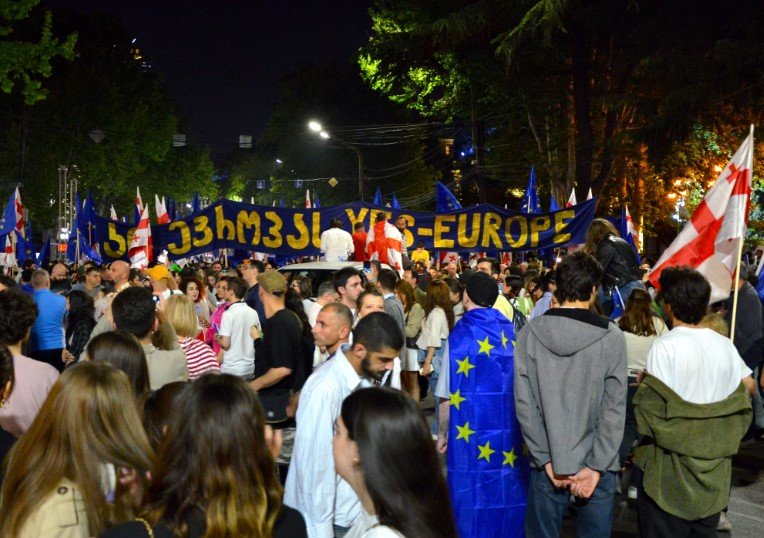Days of protests in Georgia have thrown the country into turmoil after the government’s controversial decision to delay its bid to join the European Union. Demonstrations have gripped the capital, Tbilisi, and spread to other cities, with tens of thousands voicing their frustration over what many see as a betrayal of Georgia’s pro-European aspirations.
The situation is tense, with protesters clashing with police, opposition leaders raising alarm, and international observers expressing concern over the government’s response.
The Roots of Discontent
Georgia has long aspired to EU membership, a goal enshrined in its constitution and supported by a majority of its 3.7 million citizens. Independence from the Soviet Union in 1991 marked the start of a journey toward integration with Europe, a path many hoped would bring economic stability and democratic governance.
But the ruling Georgian Dream party’s announcement last week threw a wrench into these plans. Citing disputes with the European Union over election irregularities, Prime Minister Irakli Kobakhidze declared a four-year suspension of EU accession talks, accusing the bloc of using the process to “blackmail” Georgia. This move came after the European Parliament rejected Georgia’s election results, intensifying accusations that the government was straying from democratic norms.
For many Georgians, the government’s rhetoric signals a worrying shift toward authoritarianism and closer ties with Russia—an alarming prospect for a nation still haunted by its Soviet past.

Protests Escalate in Tbilisi and Beyond
Tbilisi has become the epicenter of the unrest, with demonstrators gathering nightly outside the parliament building. Waving EU and Georgian flags, protesters have chanted slogans like “Russian slaves!” to denounce the government’s perceived alignment with Moscow.
The response from law enforcement has been severe. Water cannons, tear gas, and baton-wielding officers have met the crowds, drawing widespread criticism for what many describe as excessive force. More than 100 people have been arrested, with reports of protesters being beaten by unidentified individuals in balaclavas.
The unrest is not confined to the capital. Demonstrations have erupted in at least eight cities, with protesters throwing eggs at government buildings in Khashuri and blocking key roads to the Black Sea port city of Poti.
“I’ve witnessed protests before, but this level of aggression from the police is shocking,” said Tsotne Jafaridze, a winemaker in Tbilisi.
The Political Fallout
President Salome Zourabichvili, who holds largely ceremonial powers but is a vocal supporter of EU integration, has strongly condemned the government’s actions. She criticized the police crackdown, accusing them of targeting journalists and opposition figures, and likened the repression to tactics used in Russia.
“This isn’t the Georgia we’ve been striving for,” Zourabichvili said, calling for accountability and a return to democratic norms.
The international community has also weighed in. EU officials and human rights organizations have condemned the violent suppression of protests, warning that Georgia’s democratic backsliding could further jeopardize its path to EU membership.
What Lies Ahead?
The political crisis shows no signs of abating. Georgian Dream’s decision to halt EU accession talks until 2028 has galvanized opposition groups, who see this as an opportunity to challenge the ruling party’s grip on power. However, with trust in the government eroding and public anger at a boiling point, the country faces a turbulent road ahead.
Key points to watch:
- Opposition Movements: Will they gain enough momentum to force the government into concessions?
- International Pressure: Can the EU and other allies leverage influence to mediate the crisis?
- Public Sentiment: Will sustained protests push Georgian Dream to reconsider its policies, or will the crackdown escalate further?
The stakes are high for Georgia, a nation caught between its European aspirations and the lingering influence of Russia. For now, the streets of Tbilisi remain a battleground for the soul of a nation yearning for democratic progress.
